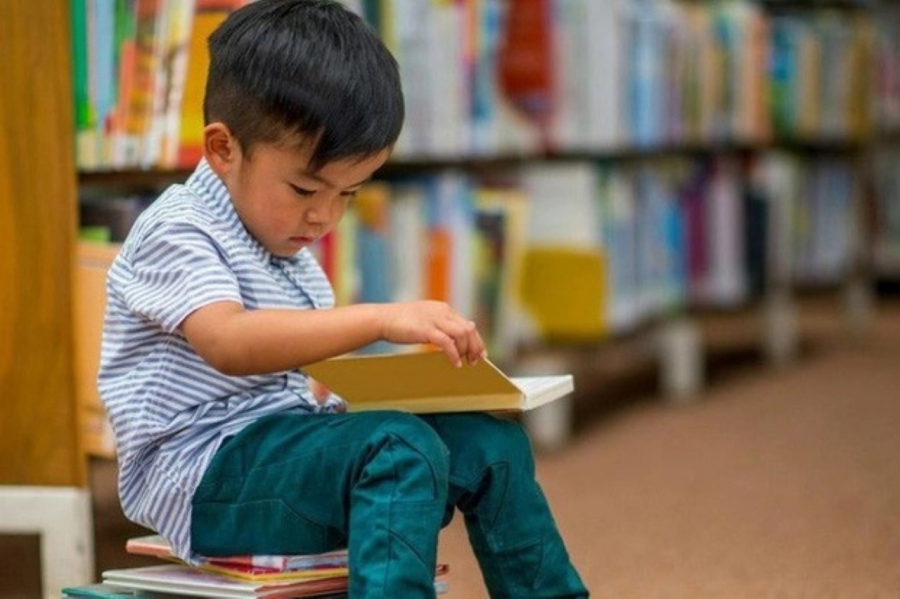To cultivate your child into a capable individual, endow them with the most valuable assets a parent can bestow. As outlined below, these three essential competencies will empower your child to lead a fulfilling and prosperous life.
1. The Ability to Read and Learn
In this knowledge-driven era, continuous learning, self-improvement, and pushing one’s boundaries are crucial for personal growth.
Warren Buffett’s success as an investment guru stems from his lifelong commitment to learning and reading.

Reading and learning throughout life is the fastest path to success. (Illustrative image)
Encouraging children to learn is not solely for academic performance but to cultivate a lifelong habit of perseverance. This also enhances their future career prospects.
Reading and continuous learning are the shortest paths to expanding knowledge, broadening perspectives, and fostering a well-rounded character. Even without conscious pursuit, this path leads to unimaginable results.
2. The Ability to Harmoniously Coexist
My close friend’s son was an exceptional student, consistently achieving academic excellence from elementary to high school, eventually gaining admission to a prestigious university.
Despite his remarkable academic record, he struggled to find employment for a year after graduating university.
After facing repeated rejections from potential employers, he became disheartened and lost the motivation to seek employment. He retreated into his room, immersing himself in video games from morning till night, withdrawing from social interactions.

Teaching children the ability to coexist with others. (Illustrative image)
My friend reached out to the HR manager of her son’s former university, and the response was revealing. While her son’s academic performance and skills were commendable, he lacked the ability to work harmoniously with others.
Upon receiving this feedback, my friend’s son reacted negatively, holding a grudge and avoiding future contact with the HR manager. He was dismissive of colleagues, confrontational when opinions differed, and overly assertive.
Many parents mistakenly believe that their child’s academic achievements and admission to renowned schools equate to parental success.
While academic accomplishments are undoubtedly important, they do not constitute the whole picture, as society serves as the ultimate arbiter of an individual’s competence.
Children will eventually leave our protective embrace, entering society and interacting with a diverse range of people, navigating life’s challenges independently.
Parents can provide material comforts and impart initial lessons, but we cannot guide them throughout their lives. A time will come when they must face the world alone, overcoming hardships, persevering through adversity, and forging their own paths.
3. The Ability to Persist
I greatly admire a Thai film about family education titled “The Seedling’s Dream.” The protagonist is a mother who dropped out of school in the fourth grade and is functionally illiterate. However, her parenting approach left me in awe, and I felt deeply ashamed.
In one scene, the young daughter accompanies her mother to the market and observes the high demand for mung beans. She inquisitively asks her mother why they are so popular. The mother replies, “Because this is the only stall selling mung beans.”
An idea strikes the young girl: “Can’t we make our own mung beans and sell them?” The mother nods in agreement.
Upon returning home, mother and daughter embark on their mung bean project. To their dismay, the beans wither and dry up within a few days.
Discouraged by the failed experiment, they nevertheless decide to give it another try.
They procure a specialized book and diligently study the scientific method for cultivating mung beans.
However, they overlook the crucial step of regular watering, leading to another round of disappointment.
Seated in their leaky shack, staring at their meager savings, the mother sheds a silent tear. Regaining composure, she turns to her daughter with a smile, “Let’s try again.”
In the wake of her mother’s words, concepts such as “success” and “failure” fade into insignificance, replaced by an unshakable determination. These words empowered her daughter, instilling resilience, confidence, and optimism in the face of life’s obstacles.
The film is based on a true story. The real-life inspiration for the young girl went on to pursue a doctorate, securing scholarships and conducting academic research in Sweden.
It is the mother’s unwavering spirit of perseverance, her constant refrain of “let’s try again,” that served as a miraculous nutrient, cultivating her daughter’s willpower and determination, allowing the seeds of knowledge within her to flourish and bear fruit.
- Reading and Learning: Encouraging a love of reading and lifelong learning helps children expand their knowledge, broaden their perspectives, and improve their academic and career prospects.
- Harmonious Coexistence: Teaching children to get along with others is vital. Social skills are essential for future employment and navigating life’s challenges, as academic achievements alone are not enough.
- Persistence: Instilling resilience and a growth mindset helps children develop the determination to face obstacles and learn from failures, fostering confidence and optimism.
































